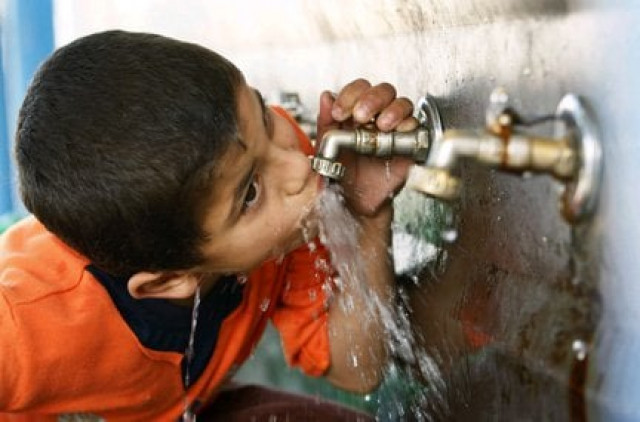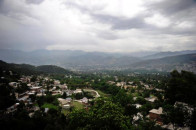A glimmer of hope for stalled water project
Kuwait joins forces in historic pact aimed at bringing water relief to twin cities

A memorandum of understanding (MoU) has recently been signed between Pakistan and Kuwait to set up a surface water treatment plant under the much-delayed Ghazi-Barotha Water Supply project for the provision of water to the twin cities of Rawalpindi and Islamabad. The plant will have a capacity of 650 million gallons of water per day.
A decision has been taken to commence the longstanding project with the assistance of the Capital Development Authority (CDA), the Punjab government and the Kuwait government. The signing of the MoU took place in the federal capital between the Ministry of Water Resources and the Government of Kuwait.
The Ghazi Barotha Water Supply project aimed at providing water supply and ensuring sufficient water availability for the twin cities has remained unresolved for the past three decades, with the project's cost escalating to Rs100 billion. A consultant will be engaged to assess the project's current expenses and to conclude the project plan. The initial phase will provide 200 million gallons of water to the twin cities, followed by 200 million gallons in the second phase, and 250 million gallons in the third phase.
The twin cities are at present experiencing a surge in population, leading to a growing demand for water from Khanpur Dam, Rawal Dam, Simly Dam, and tube wells that are currently unmet. Experts anticipate that the water crisis in these cities may worsen over the next decade as water demand continues to rise. The sole resolution to secure an ample water supply for the twin cities over the next century is to obtain water from Ghazi-Barotha, even as the expenses continue to rise.
Following a thorough evaluation of the gravity of the situation by both the federal and Punjab governments, initial progress concerning the project was initiated on April 30. It was agreed upon that there would be collaboration among the centre, the Punjab government and the government of Kuwait regarding the project's expenses and that a sovereign guarantee would be provided by the federal and provincial governments. The Water and Sanitation Agency (WASA) will send a letter to the provincial government addressing the water requirements in Rawalpindi.
Previously, the CDA, being the executing agency of the project, submitted PC-1 to the Central Development Working Party (CDWP). As per the plan, the first phase of the project aims to provide 200 million gallons of water per day. This allocation entails providing 90mgd of water to the CDA, 50mgd to WASA, and 50mgd to the Cantonment Board.
The cost of the project was divided among the three institutions according to their respective water supply shares. The CDA was allocated Rs45bn, the WASA Rs22.5 billion, and the Cantonment Board was also allocated Rs22.5bn. Unfortunately, the project faced a standstill due to its high cost. However, the said project is a feasible and indispensable project to meet the water requirements of the twin cities for up to 100 years.
Upon the successful conclusion of this project, approximately 1,000 tube wells currently working under the CDA will no longer be needed. Consequently, there will be a notable reduction in electricity consumption, resulting in substantial cost savings for institutions that would otherwise have to pay significant electricity bills. Moreover, the maintenance cost will also be saved. Furthermore, citizens will benefit from the availability of superior water quality.
The underground water level in the twin cities has been rapidly decreasing as time goes by. Presently, the depth of newly installed tube wells in the twin cities has reached seven to eight hundred feet. Additionally, the water level in Khanpur Dam and Rawal Dam is also experiencing a decline. With the absence of rain, the fixed water supply from the dams to the twin cities has been diminished.
Published in The Express Tribune, May 2nd, 2024.



















COMMENTS
Comments are moderated and generally will be posted if they are on-topic and not abusive.
For more information, please see our Comments FAQ